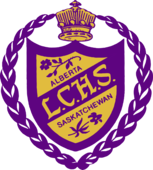Administrative Procedure 330
Child Abuse and Protection
Background
The Lloydminster Public School Division requires all employees to concern themselves with the physical, social, and emotional welfare of each student.
The identification, treatment, and prevention of child abuse and neglect requires the close cooperation of family members, child care agencies, law enforcement units, health care workers, educators, and all others whose concern affects the lives of children.
The Child, Youth and Family Enhancement Act (Alberta) requires that any adult, who has reasonable and probable grounds to believe and does believe that a child is in need of protective services, shall report the information to authorities. The Child and Family Services Act (Saskatchewan) similarly requires reporting of cases when a person has information that a child is in need of protection. Reporting of abuse is clearly outlined in the Saskatchewan Child Abuse Protocol (2014).
The Lloydminster Public School Division affirms that employees will be active partners with other agencies in supporting the needs of children.
Procedures
- The Legal Requirement to Report to Authorities:
- The Child and Family Services Act (Saskatchewan) requires that any Lloydminster Public School Division employee who has reasonable suspicion to believe that a child under the age of sixteen (16), and in exceptional circumstances, youth ages sixteen (16) and seventeen (17) are in need of protection, as a result of parent/caregiver abuse or neglect, has the responsibility to report the information to an officer of social services or a police officer.
- The Emergency Protection of Victims of Child Sexual Abuse and Exploitation Act (Saskatchewan) requires any Lloydminster Public School Division employee who has reasonable suspicion to believe that a child under the age of eighteen (18) has been or is likely to be subjected to sexual abuse to report the information to an officer of social services or a police officer.
- The Child, Youth and Family Enhancement Act (Alberta) requires any person who has reasonable and probable grounds to believe that a child is in need of intervention shall forthwith report the matter.
- The duty to report applies in spite of any claim of confidentiality or professional privilege other than solicitor/client privilege or Crown privilege.
- Assisting Children in Need of Protective Services:
- Listen openly and calmly;
- Reassure the child that they are safe and this is not their fault;
- Do not correct language and let the child report the incident in their own words;
- Document what the child has said, along with their observations of the child’s demeanor at the time of disclosure. ;
- Report (not investigate) any suspected abuse or neglect immediately to the school Principal and the provincial Ministry of Social Services in the province in which the child resides, and/or to police.
- Avoid making promises that cannot be kept (ie: “I won’t tell anyone. I will keep this a secret.”);
- Do not wait until you have all of the information before calling to report the abuse;
- Cooperate with police and child protection workers by providing access to information and an opportunity to speak to the child as needed.
- Participate in case planning and observe the child’s progress, including behavior, academic progress, emotional functioning, and physical well being.
- This oral report shall be followed at the earliest convenience by a written
report on the form provided (See Form 330-1). A copy of this report shall
be retained in the Principal’s administrative files and a second copy filed with the Superintendent of Education. - All information, reports, and discussions relative to the child abuse or
neglect will be treated as confidential by every person employed by
Lloydminster Public School Division. No notes, reports, or letters related
to a child abuse or protection incident are to be placed on a child’s
cumulative record.
- Interviews Conducted by Officers of Social Services:
- Any request from an officer of social services to interview a child shall be referred to
the principal; - The principal will work with the child protection worker and/or police to make the necessary arrangements for a confidential interview to occur.
- The child protection worker and police will determine who will be at the interview and will consider the child’s support needs and comfort level. By being present at the interview, there is a possibility that the staff member may be subpoenaed to give testimony at a child protection hearing or any criminal proceedings.
- A written confirmation may be provided to the school by the child protection worker and/or police highlighting the meeting arrangements, acknowledging the assistance of the principal and indicating the general outcome of the investigation with respect to the child in the school setting. If written information is provided is shall be retained in the Principal’s administrative files.
- When a school is notified that a child is in need of protection within the meaning of The Child and Family Services Act (Saskatchewan) or Child Welfare Act (Alberta), Lloydminster Public School Division employees shall cooperate with the persons or agencies involved in the care of the child. This may include, but is not limited to:
- Observing the child’s progress, including behaviour, academic progress, emotional functioning, and physical well being;
- Participating in any agreed upon case plan subject to the limits imposed by statute and The Education Act, 1995; and,
- Sharing information with an officer of Social Services and any other persons involved in the treatment and support of the child, subject to the limits imposed by statute, including The Education Act, 1995 and the Local Authority Freedom of Information and Protection of Privacy Act.
- Any request from an officer of social services to interview a child shall be referred to
- Students Aged sixteen (16) and Older:
- Encourage the student to seek appropriate counseling from a professional experienced in dealing with issues of abuse.
- Assist the student, within the context of the educational environment, in obtaining help to deal with the issue facing the student;
- Assist the student, should they wish, within the context of the educational environment, reporting the abuse or neglect to the appropriate authorities;
- Subject to law and statutory provisions, keep the information confidential unless given permission from the student to disclose the information; and,
- Advise the student that any information received from the student might be subject to disclosure pursuant to federal or provincial laws.
Definitions
In Saskatchewan, The Child and Family Services Act applies to children under the age of sixteen (16) and in exceptional circumstances youth ages aged sixteen (16) and seventeen (17). As well, the Emergency Protection of Victims of Child Sexual Abuse and Exploitation Act applies to children under the age of eighteen (18).
In Alberta, the Child, Youth and Family Enhancement Act defines a child is a person under the age of eighteen (18).
“In Need of Protection” - has been defined very broadly in the Child Welfare Act (Alberta) and
Child and Family Services Act (Saskatchewan). It is defined in the
Saskatchewan Child Abuse Protocol (2019) as: physical
abuse, sexual abuse and exploitation, physical neglect,
emotional maltreatment; exposure to domestic violence or
severe domestic disharmony; and, failure to provide essential
medical treatment.
The Ministry of Social Services in Alberta and Saskatchewan provide further elaboration on what constitutes in need of protection.
Reference
Section 85, 87, 175, 231 Education Act, 1995
Saskatchewan Child and Family Services Act
Child, Youth, and Family Enhancement Act (Alberta)
The Emergency Protection of Victims of Child Sexual Abuse and Exploitation Act
Saskatchewan Child Abuse Protocol, 2017
Youth and Criminal Justice Act
Canadian Charter of Rights and Freedoms
Revised
December 2017
August 2023





























